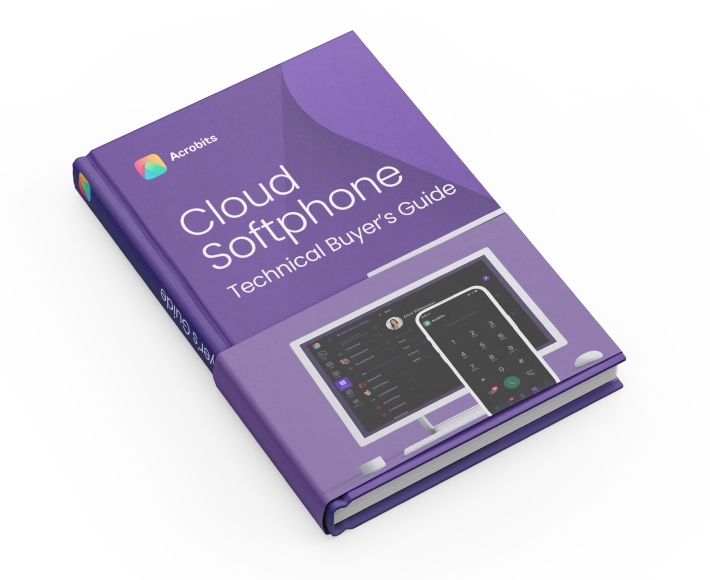
A VoIP number is a phone number that works through an Internet connection. The phone number will look the same as a landline or mobile number, but rather than being assigned to a device or location, it’s assigned to the user.
Because of this, VoIP has skyrocketed in popularity in the past decade. The Internet-based alternative to traditional telecommunications may have taken time to catch up to typical options. Still, now it can provide the same or higher level of voice quality alongside advanced capabilities.
How is the adoption of VoIP evolving? One study projects that the VoIP services market will reach US$354.7 billion by 2032 from $123.3 billion in 2022. This level of growth is indicative of the growing value and utility VOIP can provide.
In this post, we’ll be breaking down everything you need to know about VoIP numbers to help you decide if they’re the right choice for your business or personal use.
VoIP numbers are assigned to specific users by a VoIP provider to enable voice calls and advanced capabilities beyond traditional landlines. Individuals and businesses can benefit from VoIP numbers without losing out on utility.
This utility means VoIP numbers can be used on most mobile devices and desktops. However, compatibility will vary based on the specific VoIP provider. VoIP numbers can also be part of a broader Unified Communications-as-a-Service (UCaaS) solution to enable advanced communication capabilities.
Similarly, VoIP numbers may have a limited ability to contact non-VoIP users based on the provider, which requires PSTN connectivity. Level 3 VoIP number meaning indicates the PSTN connectivity and can fully replace traditional telecommunications options.
A VoIP number is a phone number that works with VoIP services. These services work by making and routing calls over the Internet. Traditional phone services route calls based on the location of the landline or mobile phone, which telecommunications providers handle.
Comparatively, VoIP numbers are assigned to specific users, and calls are routed through the Internet. Making a VoIP call is similar to any other Internet usage as independent of traditional telecom infrastructure unless interacting with a non-VoIP number.
While the underlying technology is different, the end result is largely the same between traditional phone lines and VoIP phones — making and receiving voice calls.
However, while landlines are limited to voice calls and basic features such as holding or transferring, VoIP numbers can offer video calls, rich messaging, or integration with other apps.
Additionally, VoIP services are often more affordable when compared to landlines, especially for business usage. Pricing plans and individual fees will certainly vary based on the specific provider, but generally, VoIP numbers will charge less and often sidestep long-distance charges entirely.
VoIP numbers offer the same options as landlines or mobile services, which are:
The availability of these options is another reason why VoIP has become a suitable replacement for traditional options.
How do you go about getting started with a VoIP number? Some of the following steps will vary based on the provider you choose, but the general process is:
VoIP services provide several benefits based on the specific provider and chosen plan. Generally speaking, VoIP provides each of the following:
The specific features of a VoIP number are based on the provider, with some offering highly advanced capabilities while others provide a more trimmed-down experience.
VoIP numbers and the services that power them are an increasingly valuable option for businesses. Enabling new methods of communication, cross-device compatibility, and cost-effectiveness have given VoIP services an edge over traditional services.
Acrobits Softphone makes it easy for you to replace your office phone with an always up to date, features-rich softphone that goes anywhere you go.
Are you looking to replace your desk phone? Talk to our VoIP experts today about our flexible and cost-effective solutions.

TLDR Audience What to focus on Business leaders Business leaders: Treat voice like a product, not a utility. Fund verified identity, branded calling, and in-call AI that moves AHT, FCR, and answer-rate. Engineers Build SIP and WebRTC stacks with analytics APIs, fraud and identity checkpoints, and edge AI in mind. SIP + AI is one […]

The history of VoIP is full of clever hacks. Solutions that started as stopgaps, even kludges, often ended up becoming the standard way of doing things. One of the best examples is push notifications for incoming calls on softphones. What began as a workaround has become the only accepted method on mobile platforms. And Acrobits […]

Android’s greatest strength, its openness and vast device diversity, has also created its most persistent challenge for developers: fragmentation. While Apple’s iOS universe is carefully curated, Android is free to roam across more than 20,000 device types. This means every launch is met by confronting a maze of device-specific quirks, platform evolutions, and new compliance […]

The Customer Acquisition Challenge In today’s digital marketplace, ESIM providers face an increasingly difficult challenge when it comes to customer acquisition. As the industry matures, competition for keywords in digital advertising has intensified dramatically, resulting in higher customer acquisition costs across the board. Major players and emerging startups alike find themselves trapped in bidding wars […]